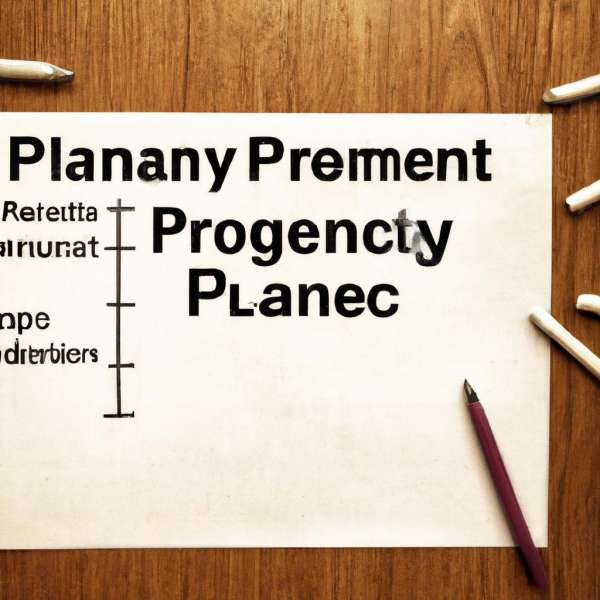Title: Mastering Estate Planning for Second Homes: A Comprehensive Guide
Introduction:
Owning a second home is often a dream come true, offering a sanctuary for relaxation and creating lasting memories. Whether it’s a secluded cabin, a beachfront villa, or a charming countryside cottage, these properties hold both sentimental and financial significance. However, as family structures and estate planning become more intricate, the fate of these beloved properties after one’s passing becomes a pressing concern. Effective estate planning for second homes requires a nuanced approach that balances emotional attachment with legal and financial considerations. This article delves into key strategies and considerations to ensure your second home continues to be a source of joy for future generations while minimizing potential conflicts and uncertainties. Join us as we explore the complexities of estate planning for these cherished retreats, equipping you with the knowledge to protect your legacy and the memories within your walls.
Key Legal Considerations for Second Homes
Estate planning for second homes involves navigating specific legal frameworks that differ from those of primary residences. These properties often present unique challenges related to ownership structures, taxation, and regulatory requirements. Understanding these legal nuances is crucial for effective management and transfer of second homes upon death.
One critical aspect is **how the second home is titled**. Different ownership structures can significantly impact estate planning:
- Sole Ownership: The property is owned by one individual, which can complicate asset transfer to heirs.
- Joint Tenancy: The property is co-owned, allowing for automatic transfer to the surviving owner upon death.
- Trust Ownership: Placing the property in a trust can help avoid probate and provide clear instructions for management and distribution.
Another important consideration is the **tax implications** associated with second homes. These can vary widely depending on the jurisdiction and may include:
| Tax Type | Potential Impact |
|---|---|
| Property Taxes | Can vary significantly based on location and usage (e.g., rental). |
| Capital Gains Tax | May apply upon the sale of the home, especially if it is not a primary residence. |
| Estate Tax | Contributes to the overall estate value, potentially triggering federal or state estate taxes. |
consider the **management and maintenance responsibilities** of the second home in your estate plan. Executors and heirs may face challenges in managing or disposing of the property, particularly if there are multiple beneficiaries with differing interests. Establishing clear guidelines in the estate plan can provide a roadmap for decision-making, ensuring the property remains a cherished family asset rather than a source of conflict.

Managing Tax Implications and Financial Strategies
Effectively managing the tax implications of a second home is a critical component of estate planning. Understanding the differences in taxation between primary and secondary residences is essential. Unlike primary homes, second homes may not qualify for the same tax exclusions upon sale. Therefore, proactive planning for potential capital gains taxes is crucial, especially if the property appreciates in value.
Additionally, evaluating how property taxes might differ based on location and valuation is important. Local tax laws can vary widely, impacting the overall cost of ownership and eventual inheritance. Here are some **practical strategies** to navigate these challenges:
- Consult a Tax Advisor: Work with professionals experienced in real estate and estate tax laws to develop a personalized plan.
- Consider a Trust: Placing your second home in a living trust can help manage taxes and streamline the transfer of assets upon death.
- Maintain Detailed Records: Keeping thorough documentation of all expenses related to the property can be beneficial during tax assessments.
Furthermore, leveraging financial strategies can provide flexibility and security. Here’s a brief overview of potential options to consider during the planning process:
| Strategy | Description |
|---|---|
| Gifting | Transferring ownership during your lifetime to reduce estate taxes. |
| Life Insurance | Using life insurance to cover potential estate taxes and provide liquidity. |
| Family Limited Partnership | Creating a partnership to manage the property and facilitate easier transfer to heirs. |
By understanding and implementing these strategies, you can ensure that your second home remains a treasured family asset, providing joy and memories for generations to come.

Designating Heirs and Making Informed Decisions
When it comes to second homes, determining who will inherit these valuable properties can be both emotional and intricate. It’s essential to communicate your intentions clearly with family members to prevent future conflicts. Consider designating heirs based on their emotional ties, financial readiness, or ability to manage the property. Establishing a clear succession plan ensures your wishes are understood, reducing disputes and maintaining family harmony.
Important Considerations
- Financial Impact: Be aware of the tax obligations that heirs may face when inheriting a second home.
- Maintenance Duties: Identify who is best suited to handle the upkeep, especially if multiple heirs are involved.
- Usage Plans: If the property is intended for shared family use, discuss how access will be managed.
In situations where multiple heirs have equal rights to a second home, setting up a clear decision-making process can be beneficial. This might involve appointing a family member or creating a shared governance model where decisions are made collectively. Utilizing a trust can also simplify the transfer process, providing governance structures that respect your wishes while efficiently managing the property.
To better organize your thoughts, consider the table below, which visualizes potential heir designations and their roles:
| Heir Name | Relationship | Designated Role |
|---|---|---|
| John Smith | Son | Primary Manager |
| Jane Smith | Daughter | Financial Consultant |
| Alex Brown | Nephew | Property Maintenance |
By discussing these factors openly and developing a decision-making framework, you can create a comprehensive estate plan for your second home that meets everyone’s needs. This proactive approach facilitates smoother transitions and fosters family unity when managing shared assets.

Creating a Comprehensive Management Plan for Your Property
Managing a second home effectively requires a well-structured management plan, which is crucial for efficient estate planning. Such a plan not only aligns with your goals as a property owner but also addresses the key responsibilities associated with owning an additional asset. Consider incorporating the following elements to ensure a thorough approach:
- Maintenance Schedule: Regular upkeep is essential. Develop a checklist detailing seasonal maintenance tasks, such as:
- Inspecting roofing and gutters
- Servicing HVAC systems
- Checking and winterizing plumbing
- Financial Overview: Evaluate the financial aspects of your second home. Keep track of:
- Mortgage payments and property taxes
- Insurance premiums
- Potential revenue from vacation rental management
- Emergency Contacts: Assemble a list of local resources to facilitate quick assistance during emergencies.
rnrn
Additionally, consider developing a schedule that outlines the timelines and duties related to your property. This can aid in streamlining decision-making processes and ensuring accountability within your management team.
| Task | Frequency | Responsible Party |
|---|---|---|
| Property Inspection | Quarterly | Property Manager |
| Landscaping | Monthly | Local Service |
| Financial Review | Annually | Owner |
By clearly outlining these aspects, you can enhance the durability and worth of your second home while ensuring peace of mind regarding estate planning. A detailed management plan serves as a roadmap, simplifying the complexities of property ownership.
In Conclusion
navigating the complexities of estate planning for second homes can feel like exploring uncharted territory. However, by adopting a thoughtful and proactive approach, you can ensure that your beloved properties are smoothly transferred to your loved ones, preserving both their value and the memories associated with them. As you embark on this journey, remember to consult with professionals, set clear intentions, and communicate openly with your family. With careful planning and consideration, your second home can continue to be a place of connection and joy for generations to come. So, take the necessary steps today to establish a solid foundation for the future, and let your legacy flourish in the spaces that hold your heart.

Mastering Estate Planning: Essential Tips for Your Second Home
Understanding the Importance of Estate Planning for a Second Home
Owning a second home can be a significant financial asset and brings about various estate planning implications. Whether you use it for vacations, as a rental property, or anticipate it as a retirement haven, integrating this property into your estate plan is crucial. Let’s dive into essential estate planning tips to ensure your second home is appropriately managed and protected.
Setting Up a Trust for Your Second Home
One of the most effective ways to manage your second home is by placing it into a trust. This can help avoid probate, reduce estate taxes, and ensure a smooth transition of ownership.
Benefits of Using a Trust
- Avoid Probate: With a trust, your second home can bypass the lengthy probate process.
- Privacy: Trusts are private documents, whereas wills become public record.
- Control: You can outline specific terms about how and when the property is to be distributed.
- Tax Benefits: Properly structured trusts can help reduce estate taxes.
Addressing Tax Considerations
Tax implications vary based on the type and location of your second home. Understanding these can help minimize your tax burden:
- Capital Gains Tax: If you sell your second home, you might be subject to capital gains tax. Strategies like using a 1031 exchange can defer these taxes.
- State Taxes: Different states have varying rules; it’s crucial to consult with a tax advisor familiar with the state laws where your second home is located.
- Property Taxes: Ensure accurate assessment and explore any available exemptions or rebates.
Considering Gifting and Deed Transfer Options
Transferring ownership can be strategic, especially if done well in advance. Here are some methods to consider:
- Gift Deeds: You can transfer ownership during your lifetime to reduce estate value and avoid probate.
- Joint Ownership with Rights of Survivorship: This ensures that the co-owner automatically inherits the property.
- Life Estate Deeds: You retain the right to use the property during your lifetime, with ownership automatically transferring upon your death.
Drafting a Comprehensive Will
Ensure that your will clearly outlines your wishes regarding the second home. Include specific instructions for maintenance, management, and eventual sale or transfer of the property.
- Executor Selection: Choose a trusted individual to execute your estate plan effectively.
- Detailed Instructions: Provide comprehensive details about your second home to avoid any ambiguity.
Incorporating Insurance Strategies
Proper insurance is essential to protect your second home. Here’s what to consider:
- Homeowners Insurance: Ensure your policy covers all potential risks, including natural disasters specific to the home’s location.
- Liability Insurance: Protect against potential liability claims, especially if the property is rented out.
- Umbrella Policy: Consider an umbrella policy to extend coverage beyond your standard policies.
Practical Tips for Managing Your Second Home
Effective management ensures your second home remains an asset, not a burden:
- Regular Maintenance: Schedule regular maintenance to preserve the property’s value.
- Professional Management: For rental properties, a professional management service can handle tenant issues, maintenance, and vacancies.
- Rental Agreements: If renting, draft clear and comprehensive rental agreements to protect your interests.
Case Study: Successfully Integrating a Second Home into an Estate Plan
Consider Mark and Linda, who bought a second home in Florida for vacations and potential retirement. They effectively integrated their second home into their estate plan with the following steps:
| Step | Action | Outcome |
|---|---|---|
| Trust Setup | Placed the home in a living trust | Avoided probate and ensured smooth transfer |
| Tax Planning | Consulted with tax advisor | Minimized capital gains and other taxes |
| Insurance Upgrade | Enhanced homeowners and liability policies | Ensured comprehensive protection |
| Regular Maintenance | Scheduled bi-annual maintenance checks | Maintained property value |


